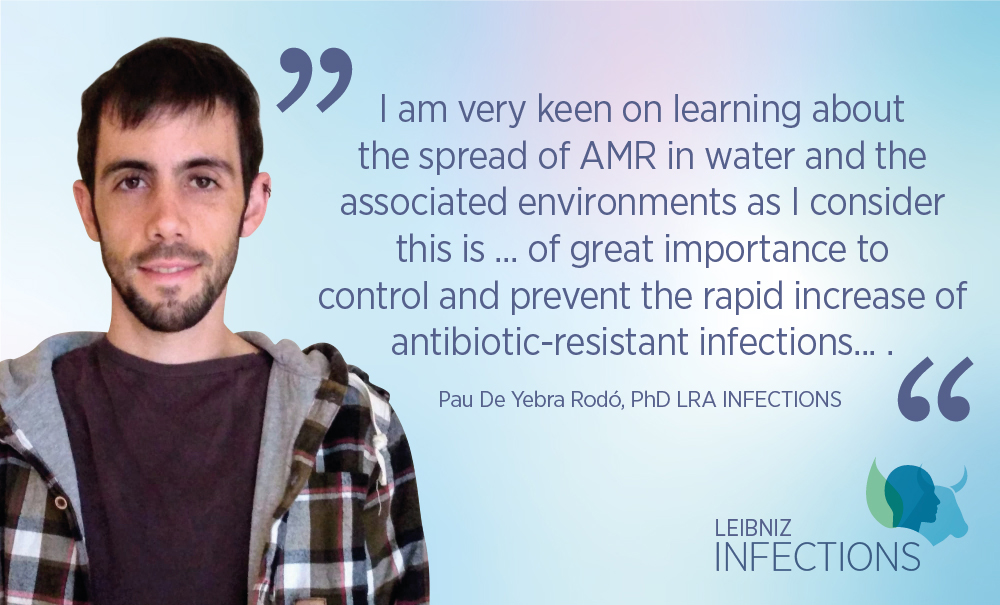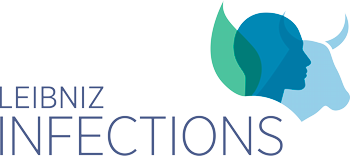PhD introduction of the week: Pau De Yebra Rodó, Microbiologist and Bioinformatician in IPT6.
As water plays a key role as a vector and reservoir for AMR transmission in urban and rural areas, the primary objective of IPT5 "Water as habitat and vector for AMR microbes" is to determine the abundance and diversity of AMR and the bacteria carrying them in bodies of water and their sediments along an urban-rural gradient by means of metagenome analyses. In cooperation with the other IPTs, a broad overview of AMR profiles in different waters and potential disease vectors in the Berlin-Brandenburg region will be elaborated.

Profile Pau de Yebra Rodó
Name: Pau De Yebra Rodó
Age: 28
Where and what have you studied?
I studied a BSc in Microbiology at the Autonomous University of Barcelona (UAB) followed by a MSc in Bioinformatics in the Open University of Catalonia (UOC).
Which field of research interests you the most?
My current interests comprise waterborne diseases and potential threats, AMR spatial transmission and the impact of urbanisation, Molecular Epidemiology and Genetics and the "One Health" approach.
Why did you apply to the Leibniz Research Alliance INFECTIONS?
I am very keen on learning about the spread of antimicrobial resistance (AMR) in humans and the environment as I consider this is highly related to my academic background as well as of great importance to control and prevent the rapid increase of antibiotic resistance genes (ARGs) that can pose a great threat to human health.
Describe your research project briefly and in a generally understandable way:
My research projects seeks to provide a better understanding of the prevalence and diversity of AMR in the water bodies and sediments across the area of Berlin-Brandenburg. This study accounts for a urban-rural gradient when analysing the transmission patters of ARGs that are present in water samples from fountains, urban lakes, rural lakes, rivers close to farms and wastewater treatment plants. Furthermore, this projects aims at characterizing AMR profiles during event specific changes, as for example comparing before and after heavy rain periods, tourist season versus off-season or during mass gathering events.
What do you think will be the biggest challenges but also the biggest opportunities during your work?
I think that one of the biggest challenges may be the fact that COVID-19 pandemic is still ongoing and very present, which could have an impact on the sampling and the data availability, as may limit the event specific changes to measure. However, I am confident that the situation will improve significantly in the following year and that this project will provide relevant insights on the presence of hotspots and potential threats in the environment as well as new guidelines on how to prevent and address the transmission of AMR and consequent infection with multiresistant organisms (MROs).
Thanks for the interview. We are happy to have you on board!

